200以上 exocrine pancreatic insufficiency symptoms mayo clinic 642909
Abstract The causes of chronic malabsorption may be categorized as decreased intestinal absorption, most commonly caused by celiac sprue;Exocrine pancreatic insufficiency (EPI) is the inability to properly digest food due to a lack of digestive enzymes made by the pancreasEPI is found in humans afflicted with cystic fibrosis and Shwachman–Diamond syndrome, and is common in dogsEPI is caused by a progressive loss of the pancreatic cells that make digestive enzymes;Exocrine Pancreatic Insufficiency Symptoms There are several symptoms you may notice in a dog with EPI including Chronic diarrhea The stool will be a light yellow or clay collar and have poor consistency ;
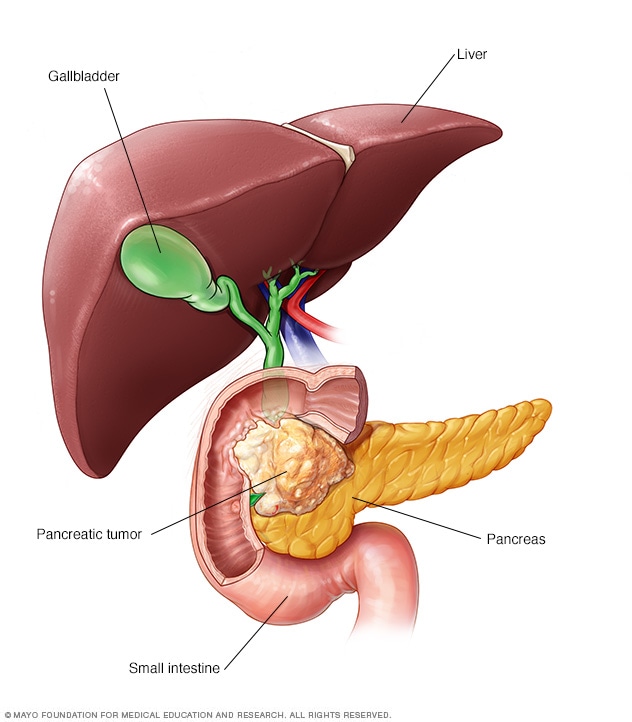
Pancreatic Cancer Symptoms And Causes Mayo Clinic
Exocrine pancreatic insufficiency symptoms mayo clinic
Exocrine pancreatic insufficiency symptoms mayo clinic-Exocrine Pancreatic Insufficiency (EPI) in Chronic Pancreatitis • Inability to properly digest food due to a relative lack of functional pancreatic enzymes • Etiology – Destruction of pancreatic parenchyma and loss of acinar cells – Obstruction of the pancreatic duct secondary toExocrine pancreatic insufficiency (EPI) is described as a reduction in pancreatic enzyme activity below the normal digestive threshold level Clinical symptoms of EPI include steatorrhea, bloating, abdominal discomfort, and weight loss




What Causes Exocrine Pancreatic Insufficiency
ELASF Diagnosis of exocrine pancreatic insufficiency in case of unexplained diarrhea, constipation, steatorrhea, flatulence, weight loss, upper abdominal pain, and food intolerances Monitoring of exocrine pancreatic function in cystic fibrosis, diabetes mellitus, or Exocrine pancreatic insuffency in 15 after having a severe reaction to premarin estergen cream then 2 weeks later i had an even more sever reaction to an infusion of reclast it is a biphosphonates l am severly allergic to phosphates,dr did not check for thati had diarrhea lost lbs destroyed 90 % of my pancreas dr gave me creon 3600 2 with Pancreatic insufficiency is a condition in which the pancreas is not able to produce and/or transport enough digestive enzymes to break down food in the intestine This condition is also known as exocrine pancreatic insufficiency or EPI The pancreas is a narrow, flat gland about six inches long located deep in your abdominal cavity, behind the
Exocrine pancreatic insufficiency Chronic pancreatitis is complicated by SIBO in 30%40% of cases7,25Multiple factors can be involved exocrine pancreatic insufficiency (with absence of antibacterial effect of proteolytic enzymes), abnormal chyme in the small intestinal lumen, motility disorders, administration of painkillers and ongoing alcohol consumption in some The Mayo Clinic suggests that your diet be one that is low in fat, made up mostly of fresh fruits and vegetables, whole grains and lean meats Spinach, blueberries and red grapes are three foods that have been discovered to be most helpful due to their high levels of iron, B vitamins and antioxidantsExocrine pancreatic insufficiency Exocrine pancreatic insufficiency is an under recognized complication of pancreatic disease 13 While patients with advanced exocrine pancreatic insufficiency usually present with abdominal pain and steatorrhea, those with less severe insufficiency may only have mild symptoms
Pancreatic exocrine insufficiency can follow major pancreatic resection and result in the malabsorption of fat, causing symptoms of steatorrhea, abdominal pain and weight loss The extent of malabsorption will depend on the original disease process and the type and extent of surgical resectionTreatment of exocrine pancreatic insufficiency with the use of eight tablets of pancreatin with meals consisting of 25 g of fat per meal will generally abolish azotorrhea Although steatorrhea is not totally corrected, satisfactory nutritional status and relative relief of symptoms Failure in any of these steps may result in pancreatic exocrine insufficiency, which leads to steatorrhea, weight loss and malnutritionrelated complications, such as osteoporosis




Vitamin D Deficiency Wikipedia
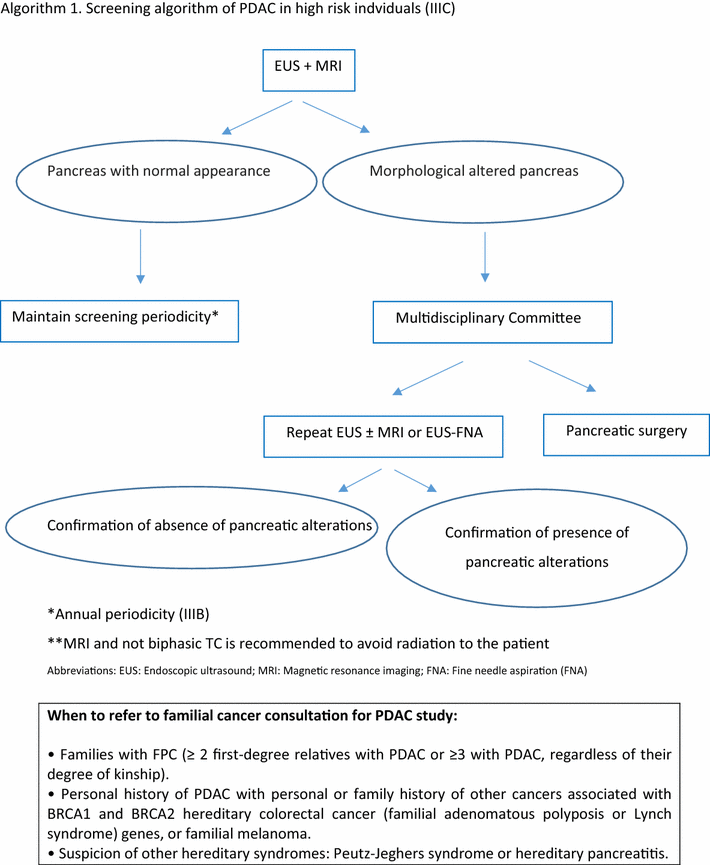



Consensus Guidelines For Diagnosis Treatment And Follow Up Of Patients With Pancreatic Cancer In Spain Springerlink
Loss of digestive enzymes leads to maldigestion Hi Greenear, Im a 52 year old male with symptoms going back to 14, I have test after test, recently went to Mayo clinic in Jacksonville about 6 mths ago, normal Ct scan, Normal Ct enterography, Normal MRI, Normal MRCP and just had an EUS normal, yet im still having symptoms, I have fat inn my stool, mild, and I have pain under right ribs through to back, myExocrine pancreatic insufficiency (EPI) is described as a reduction in pancreatic enzyme activity below the normal digestive threshold level Clinical symptoms of EPI include steatorrhea, bloating, abdominal discomfort, and weight loss




Factors That Affect Prevalence Of Small Intestinal Bacterial Overgrowth In Chronic Pancreatitis A Systematic Review Meta Analysis And Meta Regression Abstract Europe Pmc
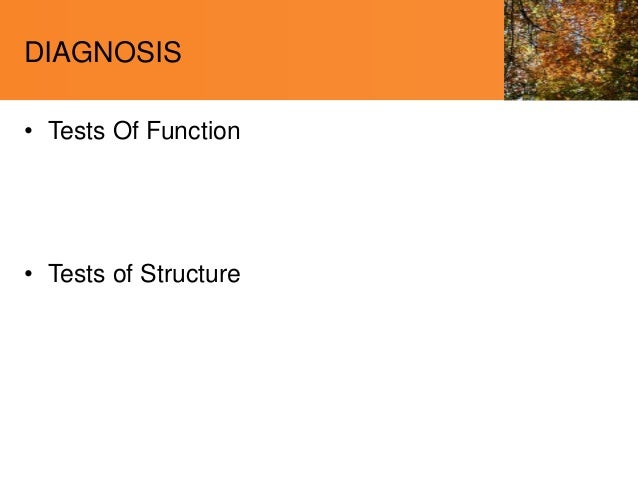



Chronic Pancreatitis
Exocrine pancreatic insufficiency, or EPI, can affect your health, both in the short and longterm Find out why EPI treatment matters By Erica Patino Exocrine pancreatic insufficiency (EPI) is a rare digestive disorder that's tied to other conditions, including chronic pancreatitis and cystic fibrosis Learn about the causes ofIncreased appetite Your dog will appear to be hungry all the timeYour dog is not digesting properly, and his body will not detect a 'full' feeling




Tumefactive Inflammatory Diseases Of The Pancreas The American Journal Of Pathology




American Pancreatic Association Practice Guidelines In Chronic Pancreatitis Evidence Based Report On Diagnostic Guidelines Abstract Europe Pmc
When you have EPI, you don't get the nutrition you need because your body can't absorb fats and some vitamins and minerals from foods You might lose weight or have pain in your belly There are Ive been dealing with chronic fatty stools diarrhea up to 10 times a daywhich lead doctors with a dx of exocrine pancreatic insufficiency (EPI) I was placed on a high dose of creon which helped with diarrhea but pain has remained The symptoms of EPI are similar to many other digestive conditions However, if you have unexplained weight loss, diarrhea, and fatty stools, there's a
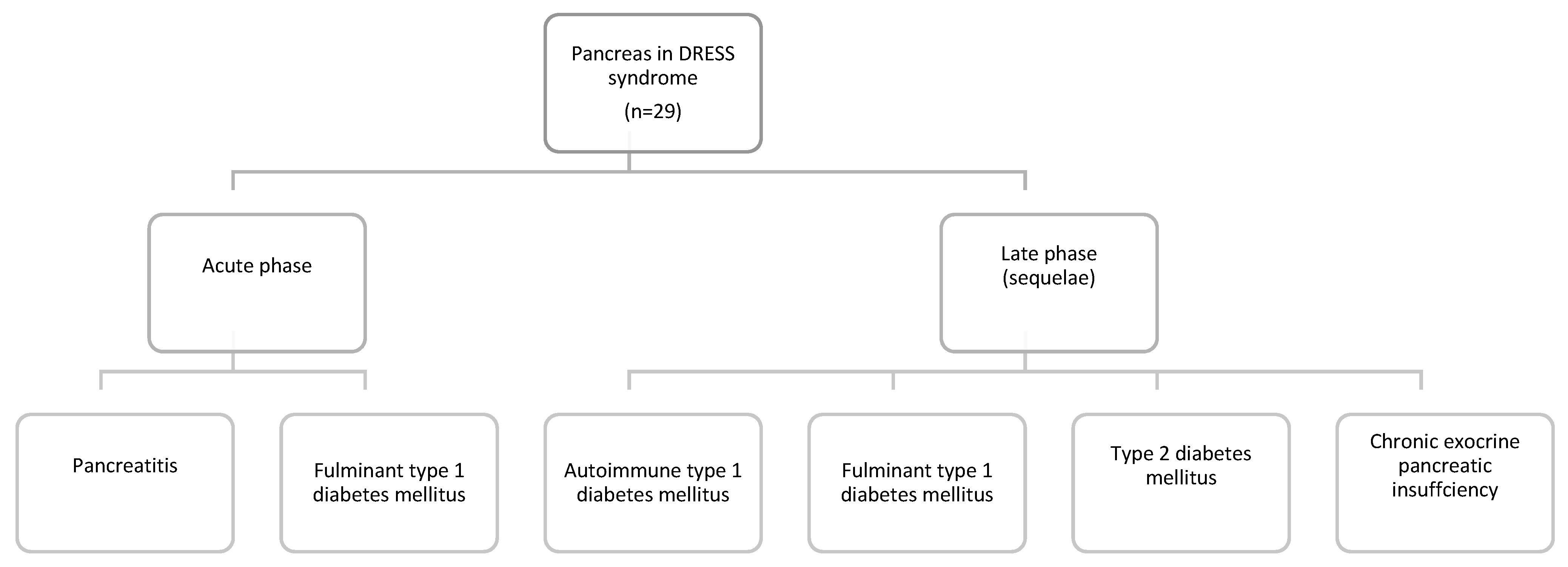



Jcm Free Full Text Less Known Gastrointestinal Manifestations Of Drug Reaction With Eosinophilia And Systemic Symptoms Dress Syndrome A Systematic Review Of The Literature Html



2
Monitoring of exocrine pancreatic function in cystic fibrosis, diabetes mellitus, or chronic pancreatitis Diagnosis of exocrine pancreatic insufficiency in cases of unexplained diarrhea constipation steatorrhea flatulence weight loss upper abdominal pain food intolerances The diagnosis of exocrine pancreatic insufficiency (EPI) is largely clinical It may go undetected because the signs and symptoms are similar to those of other gastrointestinal (GI) diseases or because the signs and symptoms are not always evident, due to dietary restrictions (see Presentation and Differential Diagnosis) Signs of exocrine pancreatic insufficiencyThe purpose of this study is to test our hypothesis that pancreatic elastase is more sensitive for the diagnosis of exocrine pancreatic insufficiency (EPI) compared to fecal fat Participation eligibility Participant eligibility includes age, gender, type and stage of disease, and previous treatments or health concerns




Pdf Diagnosis Of Autoimmune Pancreatitis The Mayo Clinic Experience Santhi Swaroop Academia Edu




Pancreatitis Eau Claire Gastroenterology Mayo Clinic Health System
Puanani Hopson, DO, a Mayo Clinic pediatric gastroenterologist, explains the pancreatic elastase test — a screening test that can be useful when symptoms point to the possibility of exocrine pancreatic insufficiency Dr Hopson reviews when this test should be ordered, how it compares to other test options, and how its results can guide further evaluationIf you have exocrine pancreatic insufficiency (EPI), your body cannot properly digest fats, proteins, and carbohydrates in the food you eat In addition to preventing adequate digestion, EPI produces uncomfortable gastrointestinal (GI) symptoms Only your doctor can tell if your GI symptoms are due to EPI or another digestive condition Exocrine pancreatic insufficiency (EPI) is a condition characterized by deficiency of the exocrine pancreatic enzymes, resulting in the inability to digest food properly, or maldigestion The etiology of this deficiency includes both pancreatic and




Multicentric Italian Survey On Daily Practice For Autoimmune Pancreatitis Clinical Data Diagnosis Treatment And Evolution Toward Pancreatic Insufficiency Barresi United European Gastroenterology Journal Wiley Online Library



2
For example, the history of abdominal pain, bad smelling bowel movements and weight loss clinically suggests a diagnosis of exocrine pancreatic insufficiency Blood tests may be ordered to check vitamin levels and pancreatic enzymesExocrine pancreatic insufficiency (EPI), sometimes called pancreatic insufficiency for short, is the inability to break down and digest food properly Symptoms of EPI can vary, but if you have one or more of these symptoms, you should talk to your doctorAbdominal pain, gas and bloating Constipation Diarrhea Fatty stools (pale, oily, foulsmelling poop that floats) Unexplained weight loss or failure to thrive in infants and children




Chronic Pancreatitis Some Important Historical Aspects Gastroenterologia Y Hepatologia English Edition




Diagnosis Of Autoimmune Pancreatitis The Mayo Clinic Experience Sciencedirect
Common Symptoms In mild cases, people with exocrine pancreatic insufficiency may have no symptoms However, as the condition progresses, symptoms develop such as abdominal discomfort or pain and a feeling of excessive fullness The individual may also feel bloated and gassy, and pass unpleasantsmelling stoolsLike EPI, this rare condition causes diarrhea and keeps your body from absorbing the nutrients it needs Other symptoms may include bloating and gas Unlike EPI, it isn't related to your pancreasELASF Pancreatic elastase (PE) is a proteolytic enzyme produced in the pancreatic acinar cells It is released as a zymogen, which is then converted to an active enzyme in the duodenum by trypsin PE has an important role in digestion, and proteolytically degrades proteins preferentially at alanine residues Exocrine pancreatic insufficiency (EPI) is described as a reduction in pancreatic



2



Dldjournalonline Com
Physicians discuss exocrine pancreatic insufficiency (EPI), including causes, risk factors and longterm consequences like nutritionrelated diseases They aWhat are the symptoms of exocrine pancreatic insufficiency (EPI)?Exocrine pancreatic insufficiency (EPI) is described as a reduction in pancreatic enzyme activity below the normal digestive threshold level Clinical symptoms of EPI include steatorrhea, bloating, abdominal discomfort, and weight loss
/2507165-article-diet-and-chronic-pancreatitis-5a5e6e3996f7d00037173956.png)



Pancreatitis Diet What To Eat For Better Management




Frontiers Prescraip A Pan European Study On Current Treatment Regimens Of Auto Immune Pancreatitis Medicine
Fieker A, Philpott J, Armand M Enzyme replacement therapy for pancreatic insufficiency present and future Clin Exp Gastroenterol 11; 4 Sarner M Treatment of pancreatic exocrine deficiency World J Surg 03;27(11) 5 The Expert Committee on the Diagnosis and Classification of Diabetes Mellitus Report of the expertIt is indicated for the treatment of exocrine pancreatic insufficiency due to cystic fibrosis (CF) or other conditions PERTZYE microspheres are formulated to contain pancreatic enzymes buffered with bicarbonate designed to simulate normal pancreatic digestive function inEPI (exocrine pancreatic insufficiency) can often be confused with other GI conditions like irritable bowel syndrome diarrhea (IBSD), celiac disease, Crohn's disease, ulcerative colitis, or small intestinal bacterial overgrowth (SIBO) because it shares many of the same symptoms
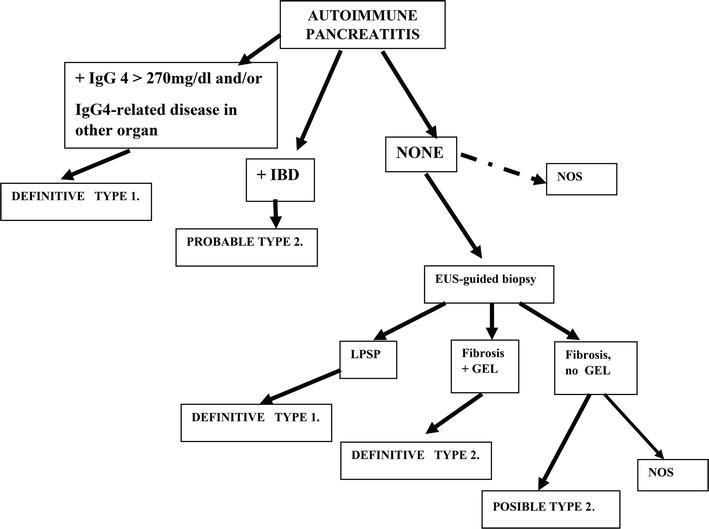



Autoimmune Pancreatitis Clinical Presentation And Therapy Intechopen
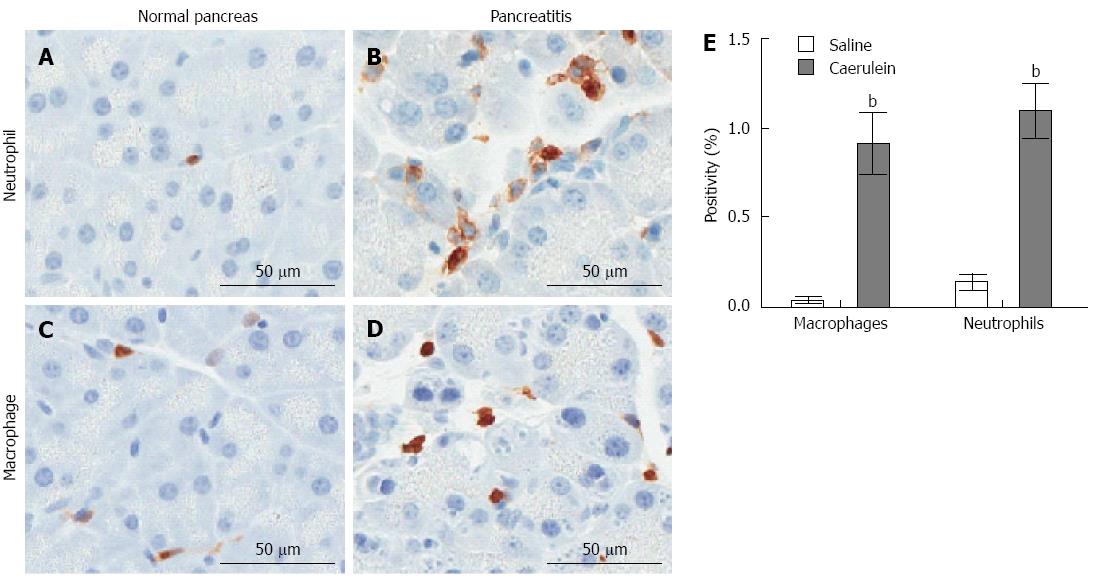



Complex Role For The Immune System In Initiation And Progression Of Pancreatic Cancer
Or maldigestion caused by pancreatic insufficiency The initial step in the evaluation of these patients should include stool studies to confirm fat malabsorption If fat malabsorption is confirmed, endoscopy with smallbowelHowever, study results of pancreatic exocrine insufficiency in pancreatic cancer are less consistent This applies for patients who are treated nonsurgically and those who undergo curative pancreatic cancer resectionThis review article summarizesThe symptoms and signs of hypoglycemia are summarized in Table 1 Hypoglycemia needs to be considered in any individual presenting with a change in mental status postoperative alterations in GI transit time and malabsorption due to exocrine pancreatic insufficiency complicate management Mayo Clinic experience and metaanalysis of the




16 Im Boards Mayo Clinic Pdf Allergen Allergy




Introduction And Practical Approach To Exocrine Pancreatic Insufficiency For The Practicing Clinician Othman 18 International Journal Of Clinical Practice Wiley Online Library
Pancreatic cancer is a malignant disease that starts in the ductal cells of the pancreas The disease occurs when cells in the pancreas grow, divide, and spread uncontrollably, forming a malignant tumor In addition to cancerous tumors, there also are a variety of benign (noncancerous) tumors that can develop in the pancreasMayo Clinic Laboratories Exocrine pancreatic insufficiency (EPI) is described as a reduction in pancreatic enzyme activity below the normal digestive threshold level Clinical symptoms of EPI include steatorrhea, bloating, abdominal discomfort, and weight loss EPI is most commonly caused by chronic pancreatitis but can also be associated Pancreatic exocrine insufficiency is a welldocumented complication of chronic pancreatitis;




Mayo Clinic Gastroenterology And Hepatology Board Review Hauser Stephen C2 Pdf Gastroesophageal Reflux Disease Esophagus




Mayo Clinic Treatment Algorithm For Management Of Initial Presentation Download Scientific Diagram
In individuals with pancreatic exocrine insufficiency, the pancreas doesn't make enough enzymes to adequately break down food into absorbable components Thi



Pancreatitis Autoimmune Tipo 1 Caso Y Revision De La Enfermedad




Chronic Pancreatitis Some Important Historical Aspects Gastroenterologia Y Hepatologia English Edition



Pancreatitis Autoimmune Tipo 1 Caso Y Revision De La Enfermedad




Diagnosing Autoimmune Pancreatitis With The Unifying Autoimmune Pancreatitis Criteria Sciencedirect




Management Of Autoimmune Pancreatitis Clinical Gastroenterology And Hepatology




Acute Pancreatitis Wikipedia




What Causes Exocrine Pancreatic Insufficiency




Enrique De Madaria According To The Classic Eugene P Dimagno Study Published In Nejm 1973 Steatorrhea 7 Grams Of Fat In Stools 24h In A Diet Containing 100g Of Fat Day Only Develops




Chronic Diarrhea Diagnosis And Management Irritable Bowel Syndrome Diarrhea




Exocrine Pancreatic Insufficiency Diet




Pdf Igg4 Positive Plasma Cell Infiltration In The Diagnosis Of Autoimmune Pancreatitis




Introduction And Practical Approach To Exocrine Pancreatic Insufficiency For The Practicing Clinician Othman 18 International Journal Of Clinical Practice Wiley Online Library




Mayo Clinic Laboratories Masks And Covid 19 Prevention Dr Bill Morice Facebook




Contemporary Management Of Pancreatic Cancer From An Internist Perspective The American Journal Of Medicine
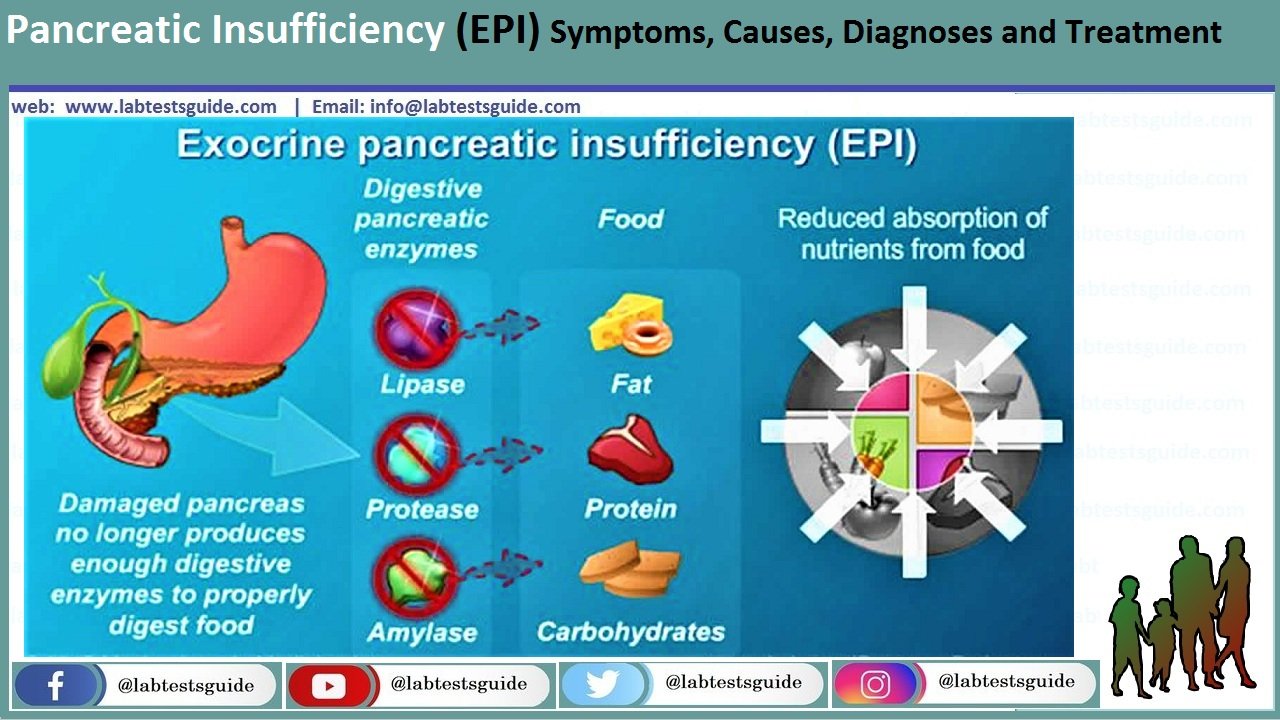



Pancreatic Insufficiency Epi Symptoms Causes Diagnoses And Treatment Lab Tests Guide




Pancreatic Juice Prostaglandin E2 Concentrations Are Elevated In Chronic Pancreatitis And Improve Detection Of Early Disease Abstract Europe Pmc




Pancreatic Cancer Symptoms And Causes Mayo Clinic



Pancreatitis Autoimmune Tipo 1 Caso Y Revision De La Enfermedad




The Chronic Pancreatitis International Classification Of Diseases Ninth Revision Clinical Modification Code 577 1 Is Inaccurate Compared With Criterion Standard Clinical Diagnostic Scoring Systems Abstract Europe Pmc




Efficacy And Safety Of Creon 24 000 In Subjects With Exocrine Pancreatic Insufficiency Due To Cystic Fibrosis Journal Of Cystic Fibrosis



2




The Effect Of Small Amounts Of Alcohol On The Clinical Course Of Chronic Pancreatitis Mayo Clinic Proceedings




Differences In Age At Onset Of Symptoms And Effects Of Genetic Variants In Patients With Early Vs Late Onset Idiopathic Chronic Pancreatitis In A North American Cohort Clinical Gastroenterology And Hepatology




Acute Pancreatitis Wikipedia




Exocrine Pancreatic Insufficiency Diet




What Is Exocrine Pancreatic Insufficiency Symptoms Causes Diagnosis Treatment And Prevention Everyday Health




Multicentric Italian Survey On Daily Practice For Autoimmune Pancreatitis Clinical Data Diagnosis Treatment And Evolution Toward Pancreatic Insufficiency Barresi United European Gastroenterology Journal Wiley Online Library



F6publishing Blob Core Windows Net




Early And Late Onset In Idiopathic And Alcoholic Chronic Pancreatitis Surgical Clinics




Allyson S Blog Follow As I Give Updates On My Mayo Clinic Stay



Japi Org




Chronic Pancreatitis In Japan Epidemiology Prognosis Diagnostic Criteria And Future Problems Semantic Scholar




A To Z Nutrition Guide For Epi Everyday Health




Evaluating The Patient With Diarrhea A Case Based Approach Mayo Clinic Proceedings
/exocrine-pancreatic-insufficiency-4177936-821-618578bea845406fa96c78167aff8657.png)



Exocrine Pancreatic Insufficiency Symptoms Causes And Diagnosis
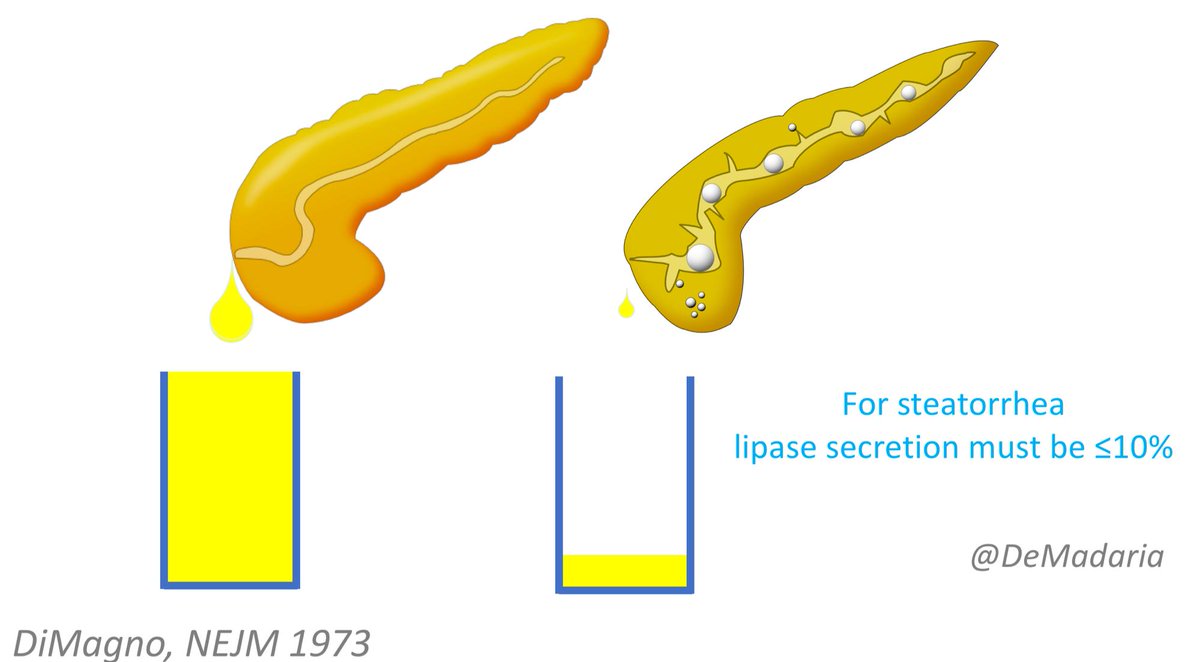



Enrique De Madaria According To The Classic Eugene P Dimagno Study Published In Nejm 1973 Steatorrhea 7 Grams Of Fat In Stools 24h In A Diet Containing 100g Of Fat Day Only Develops




Chronic Pancreatitis Diagnosis Classification And New Genetic Developments Sciencedirect
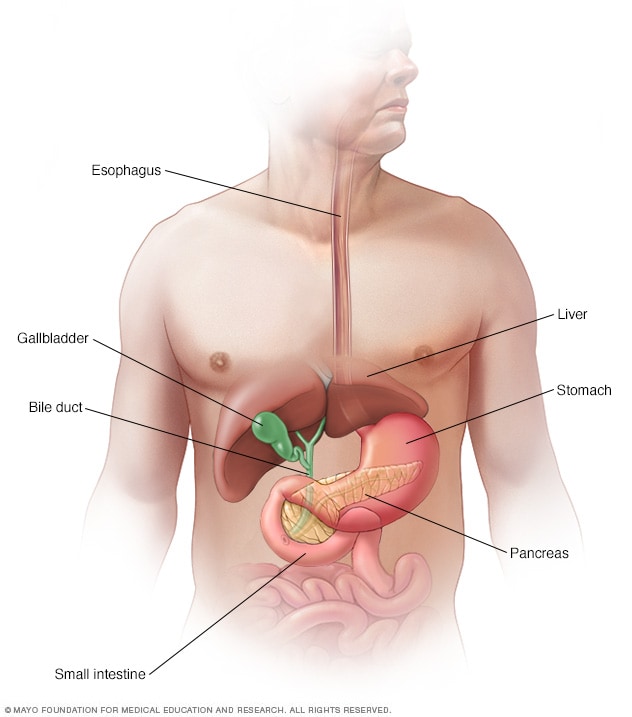



Pancreatic Cancer Symptoms And Causes Mayo Clinic



1



2




Symptoms Of Exocrine Pancreatic Insufficiency Everyday Health
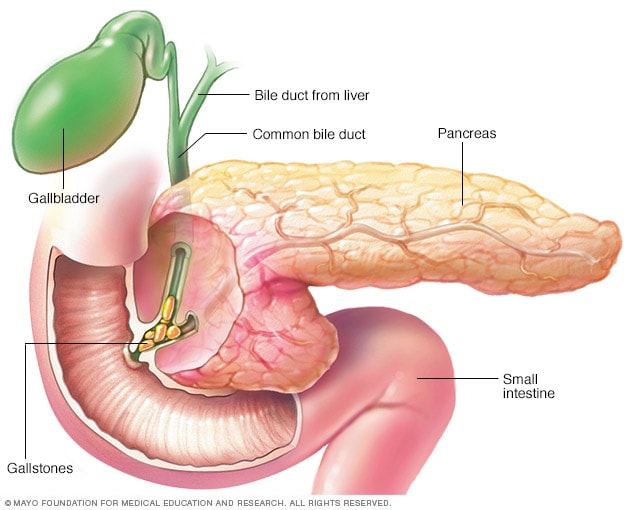



Pancreatitis Symptoms And Causes Mayo Clinic




Chronic Pancreatitis The Lancet
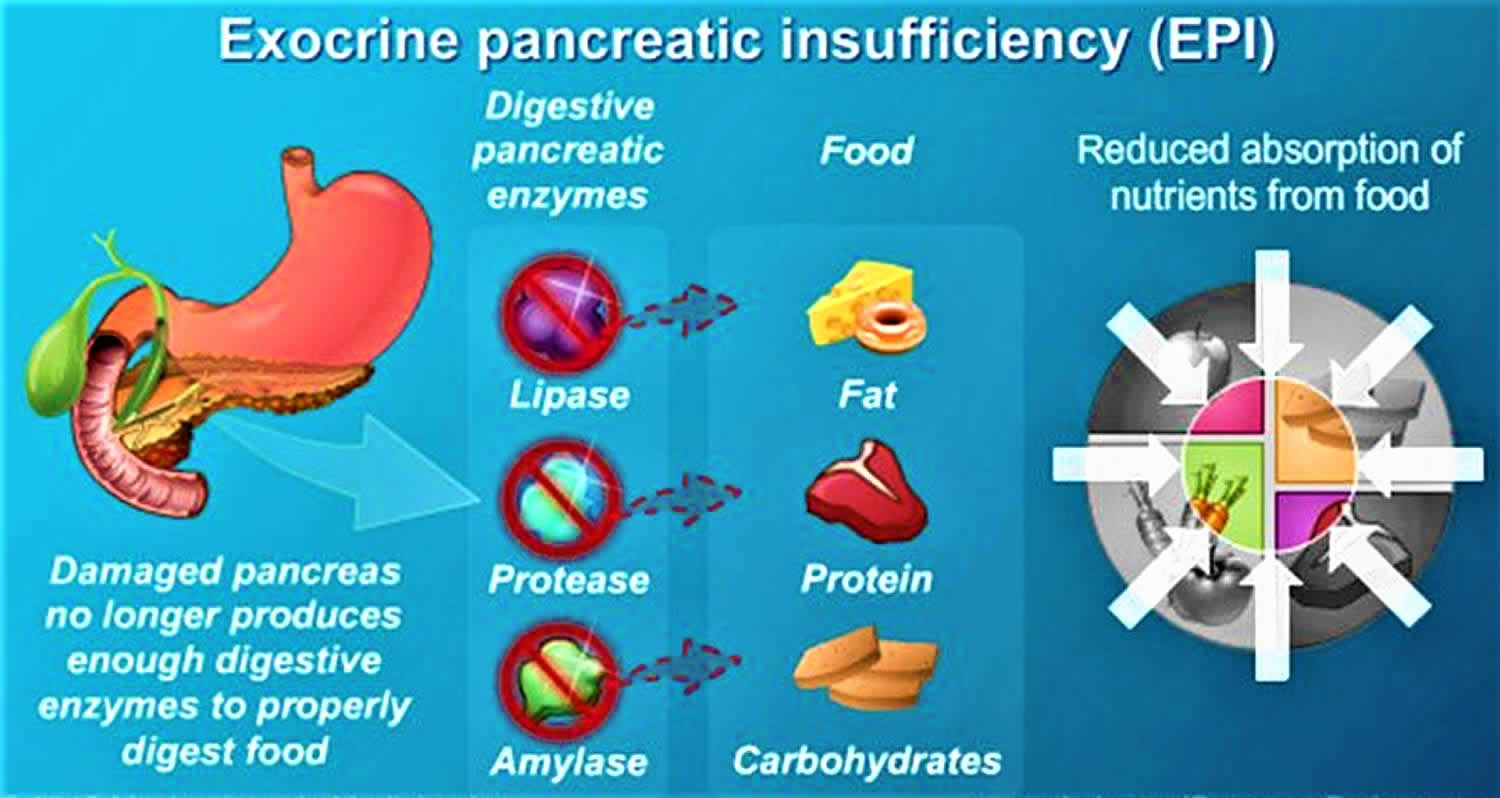



Exocrine Pancreatic Insufficiency Causes Symptoms Diagnosis Treatment




Mayo Clinic Treatment Algorithm For Management Of Initial Presentation Download Scientific Diagram




Chronic Diarrhea In Diabetes Mellitus Mechanisms And An Approach To Diagnosis And Treatment Mayo Clinic Proceedings




Pancreatic Cancer And The Whipple Procedure A Medical



1




Pdf Pancreatic Exocrine Insufficiency In Pancreatic Cancer A Review Of The Literature




Introduction And Practical Approach To Exocrine Pancreatic Insufficiency For The Practicing Clinician Othman 18 International Journal Of Clinical Practice Wiley Online Library




Causes Of Exocrine Pancreatic Insufficiency Epi Pancreatic Conditioner Cystic Fibrosis



2
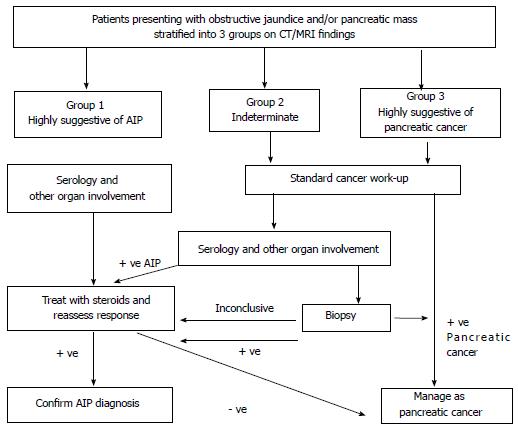



Review Of The Diagnosis Classification And Management Of Autoimmune Pancreatitis



Dldjournalonline Com
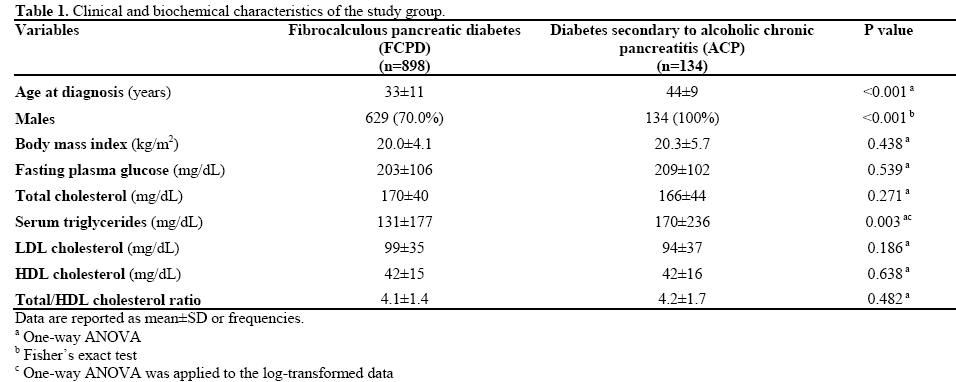



Secular Trends Of Fibrocalculous Pancreatic Diabetes And Diabetes Secondary To Alcoholic Chronic Pancreatitis At A Tertiary Care Diabetes Centre In South India Insight Medical Publishing




References In Effect Of A Purified Amylase Inhibitor On Carbohydrate Metabolism After A Mixed Meal In Healthy Humans Mayo Clinic Proceedings



1




Pdf Laparoscopic Management Of Small Bowel Obstruction Indications And Outcome
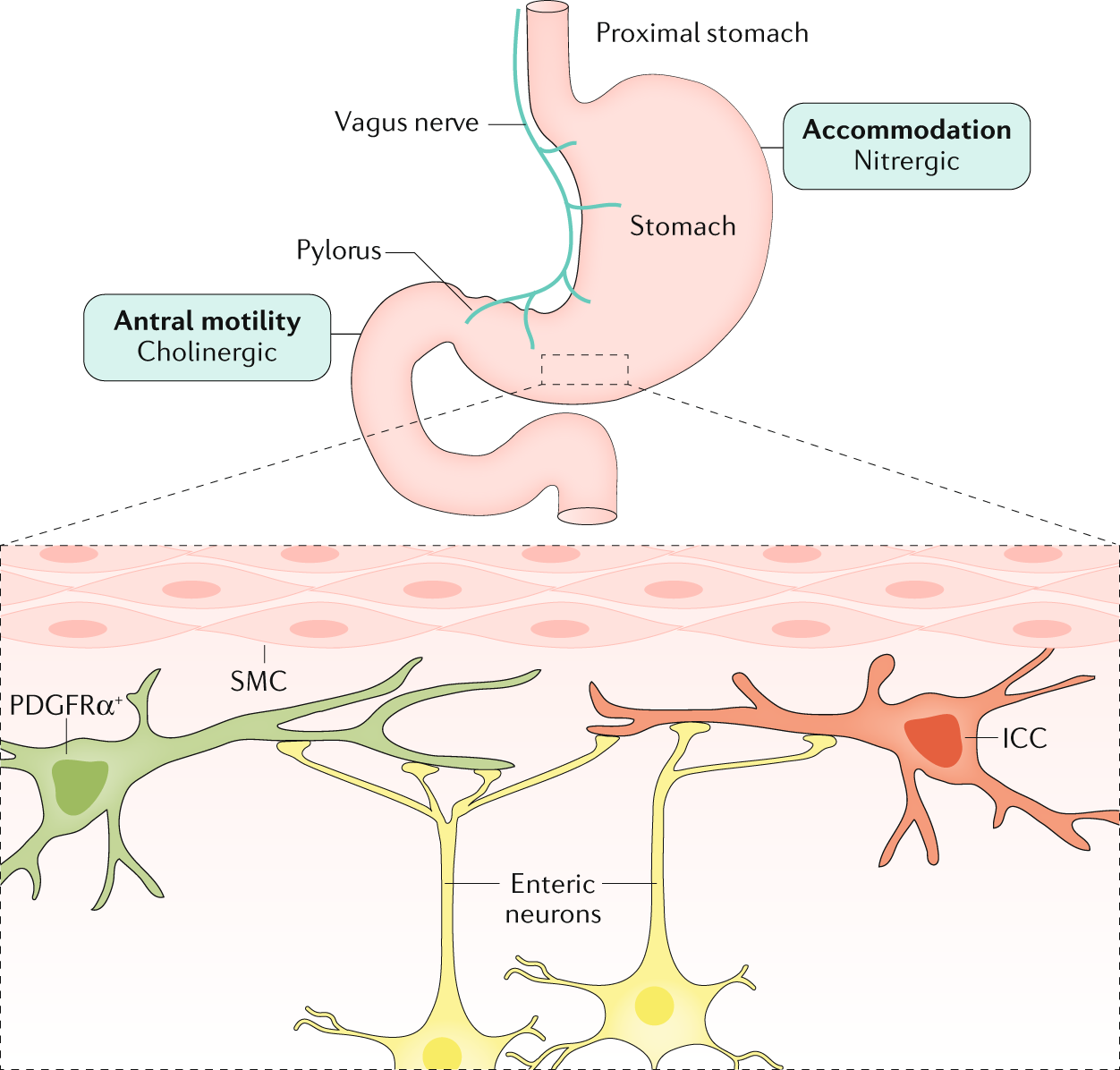



Gastroparesis Nature Reviews Disease Primers




Pdf Pancreatic Cancer Clinical Presentation Pitfalls And Early Clues




Multicentric Italian Survey On Daily Practice For Autoimmune Pancreatitis Clinical Data Diagnosis Treatment And Evolution Toward Pancreatic Insufficiency Barresi United European Gastroenterology Journal Wiley Online Library



2



1




Pancreas Disorders Epi Pancreatitis And More
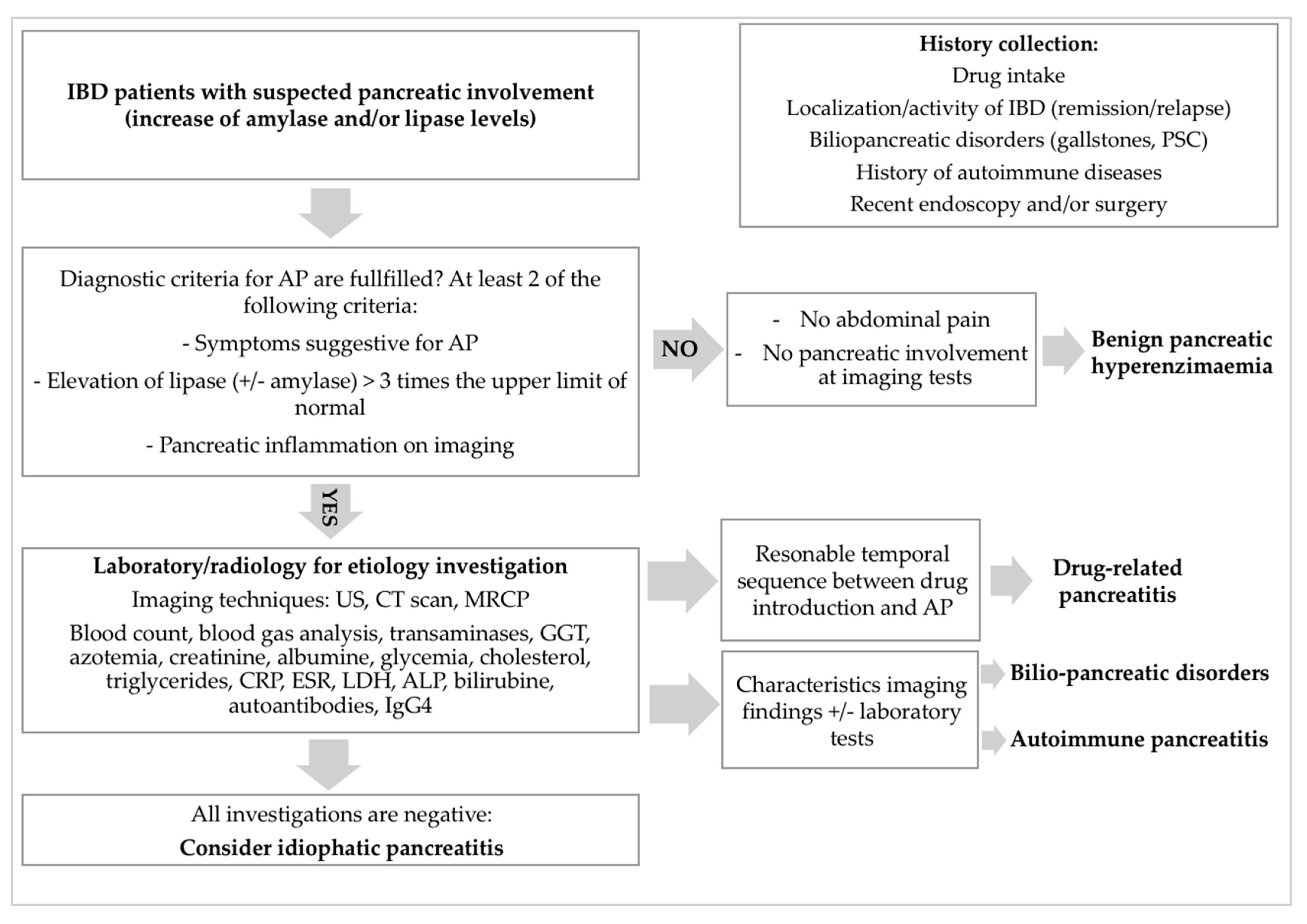



Genes Free Full Text Pancreatic Associated Manifestations In Pediatric Inflammatory Bowel Diseases Html




What Is Exocrine Pancreatic Insufficiency Symptoms Causes Diagnosis Treatment And Prevention Everyday Health
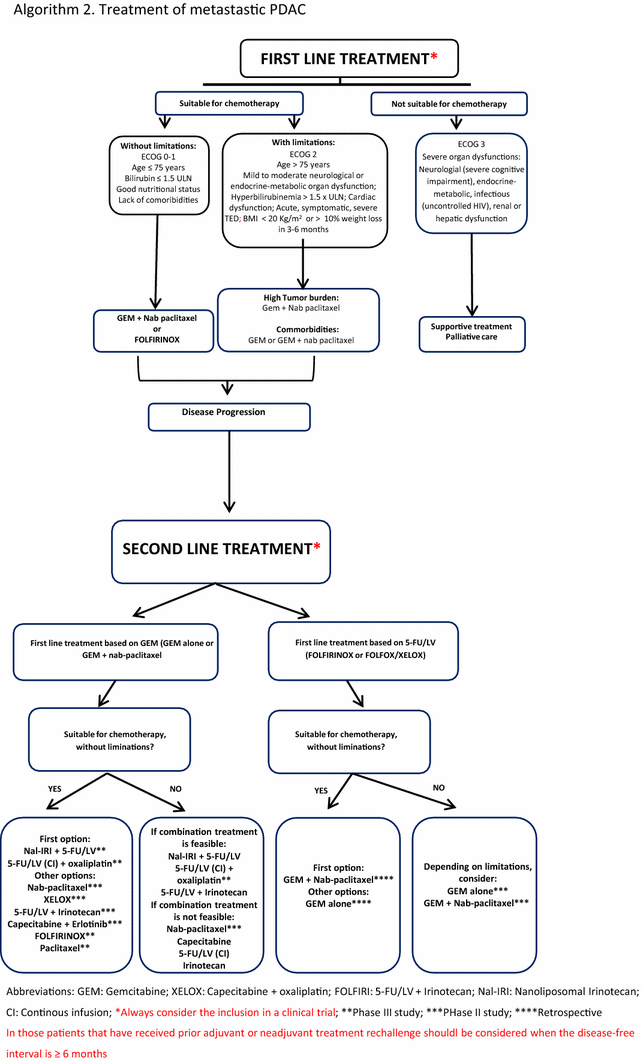



Consensus Guidelines For Diagnosis Treatment And Follow Up Of Patients With Pancreatic Cancer In Spain Springerlink




Symptoms And Tests Used In The Diagnosis Of Exocrine Pancreatic Download Table
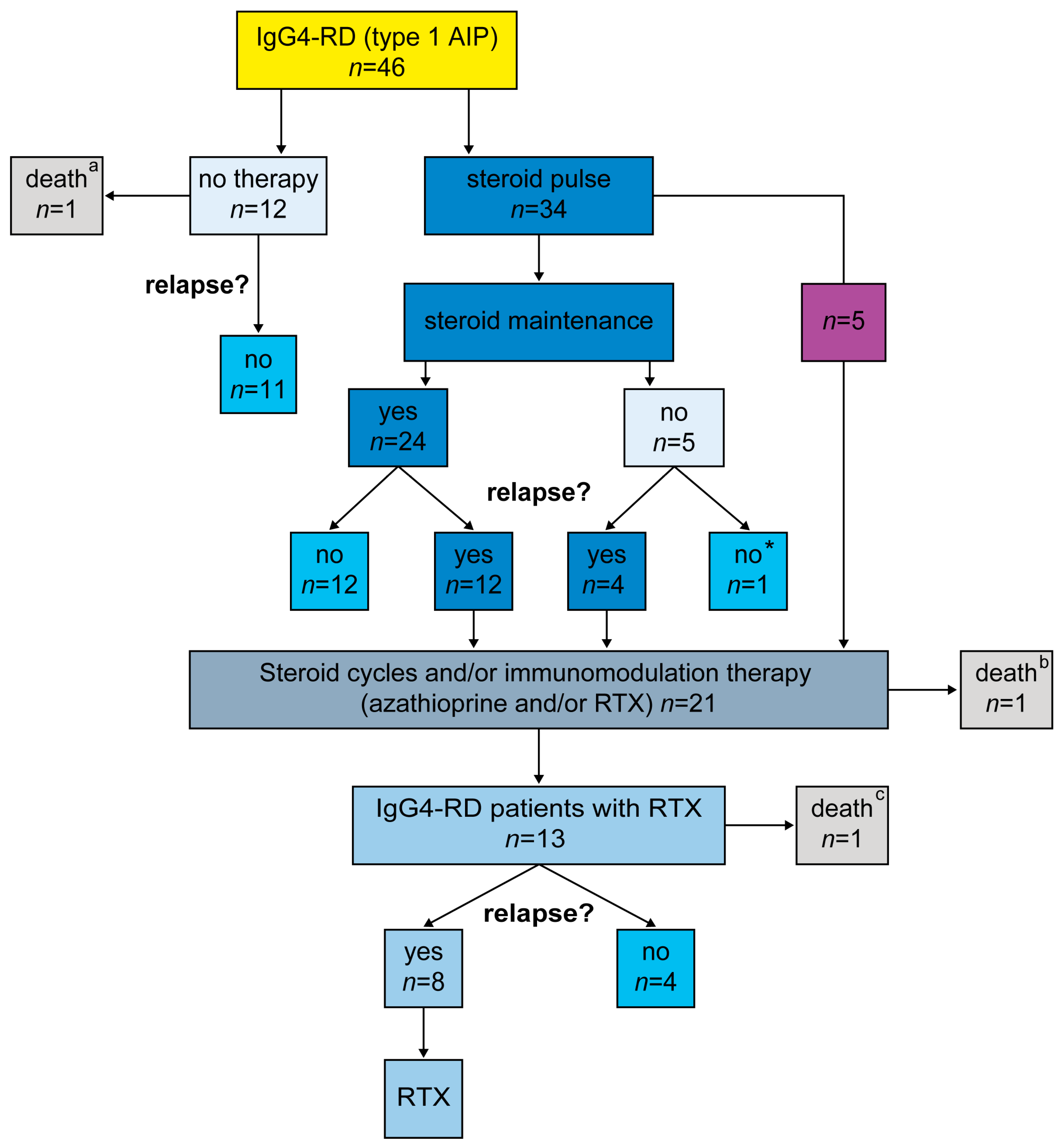



Jcm Free Full Text A Follow Up Study Of A European Igg4 Related Disease Cohort Treated With Rituximab Html




Exocrine Pancreatic Insufficiency Insights




Diagnosis Of Autoimmune Pancreatitis The Mayo Clinic Experience Sciencedirect




Causes Of Exocrine Pancreatic Insufficiency Everyday Health
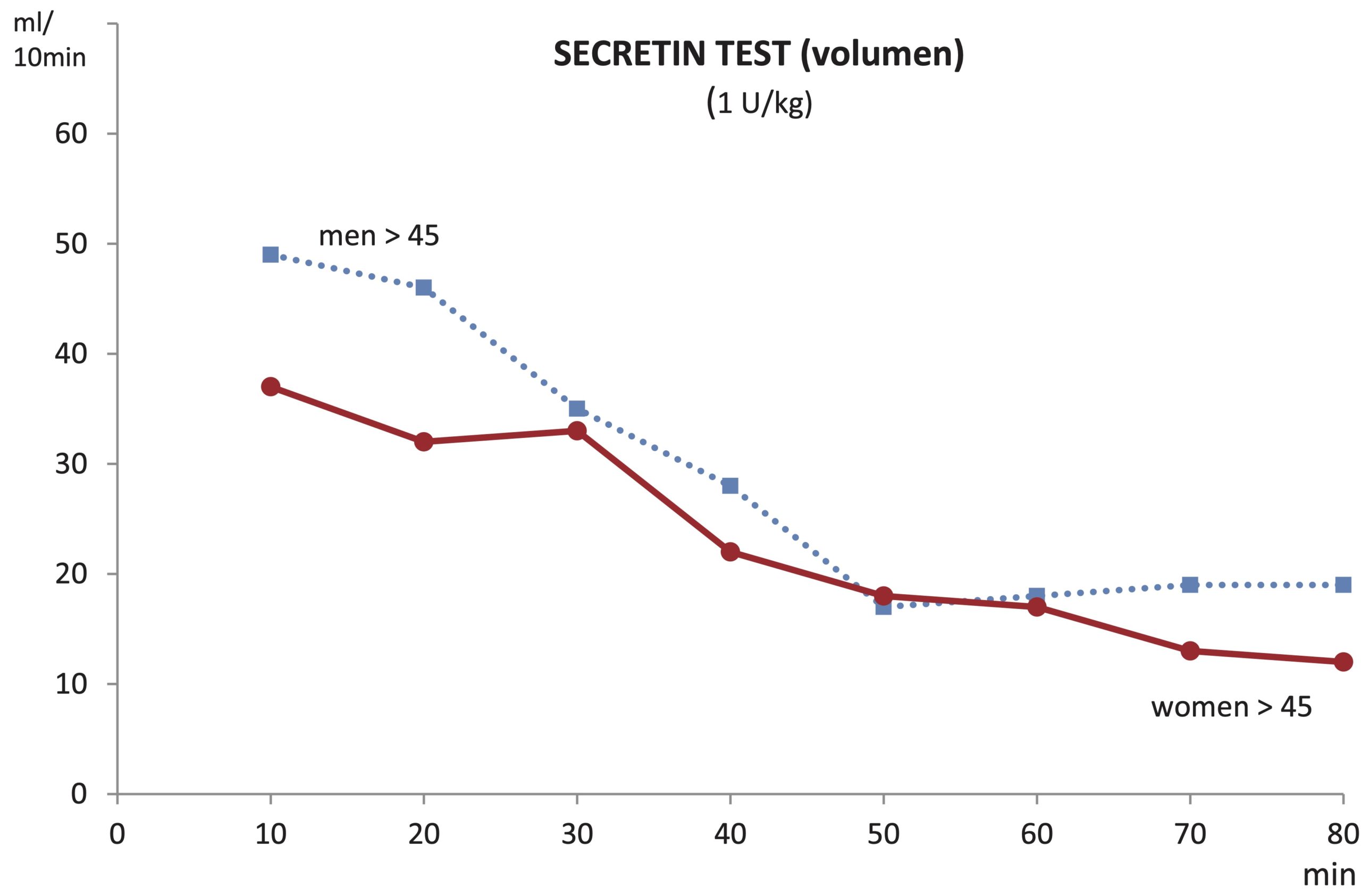



Exocrine Pancreas Function Sex Age Estrogenic And Cholinergic Tone Preliminary Clinical Value Of Citrates Magic Powder




Pancreatic Cancer The Lancet




Exocrine Pancreatic Insufficiency Clinical Gastroenterology And Hepatology



2




Tumefactive Inflammatory Diseases Of The Pancreas The American Journal Of Pathology




Calprotectin And Inflammatory Bowel Disease Hot Topic Youtube




Pdf Dual Phase Computed Tomography For Assessment Of Pancreatic Fibrosis And Anastomotic Failure Risk Following Pancreatoduodenectomy Marianne Huebner Academia Edu




Nutritional Support And Therapy In Pancreatic Surgery A Position Paper Of The International Study Group On Pancreatic Surgery Isgps Surgery
コメント
コメントを投稿